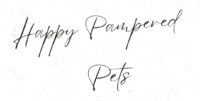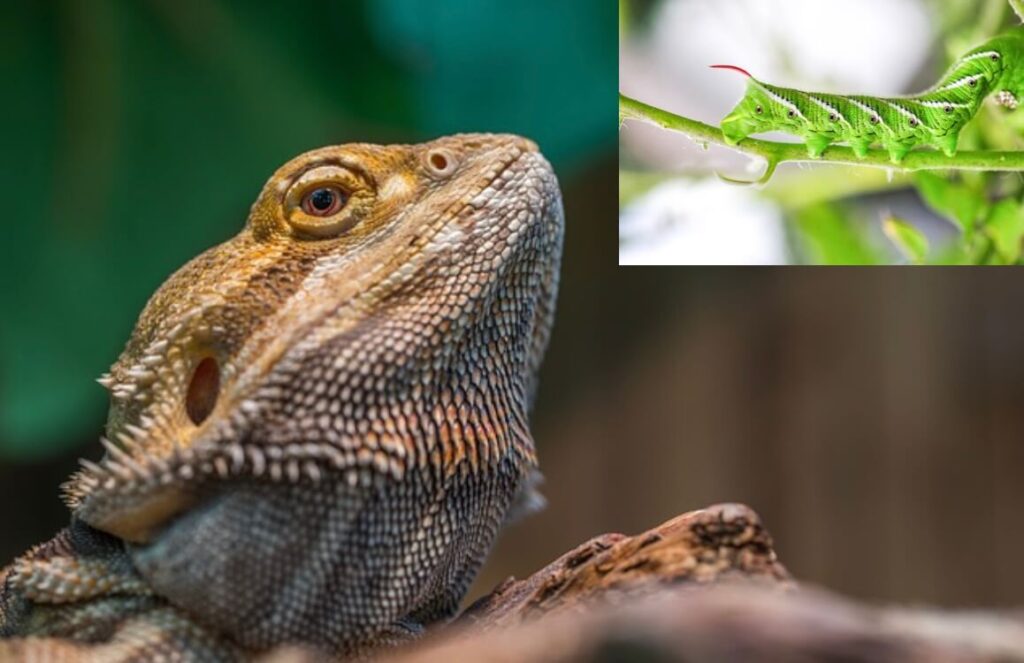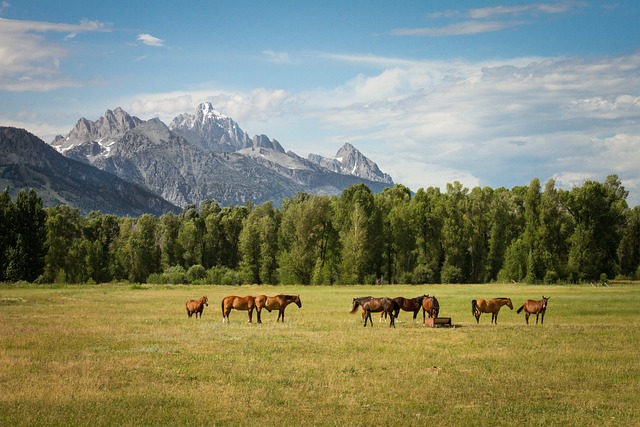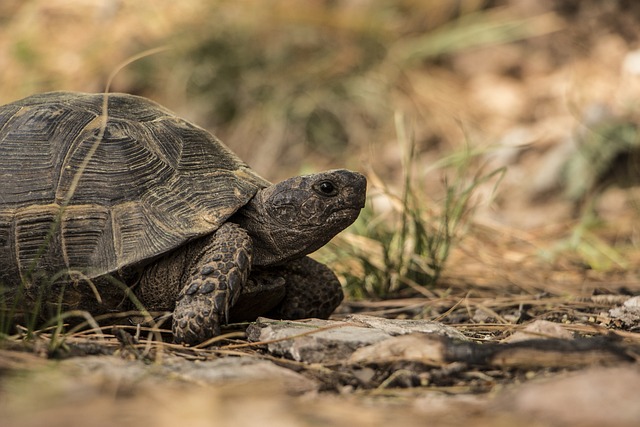If you’re wondering “Can bearded dragons eat hornworms?” the answer is yes. Hornworms are full of protein and vital nutrients for bearded dragons, but they should be eaten in moderation and not daily.
In this article, we’ll explore the nutritional value of hornworms for bearded dragons and how to feed them properly. As well, see our full guide on feeding beardies worms here – Can bearded dragons eat worms?
Can bearded dragons eat hornworms?
- Can bearded dragons eat hornworms?
- Hornworm Nutritional Value for Bearded Dragons:
- How often should you give hornworms to your beardie?
- Should I feed my baby bearded dragon hornworms?
- Cons associated with feeding hornworms to your bearded dragon:
- What to do if your bearded dragon eats pesticide covered hornworms accidentally?
- Frequently Asked Questions (FAQ): Can bearded dragons have hornworms?
- Foods bearded dragons can eat:
- Getting your bearded dragon calcium:
- Vegetables to feed your bearded dragon:
- Insects to feed your bearded dragon:
- How often should you feed a bearded dragon?
- What should a bearded dragon not eat?
- Recap: Can bearded dragons have hornworms?
Hornworm Nutritional Value for Bearded Dragons:
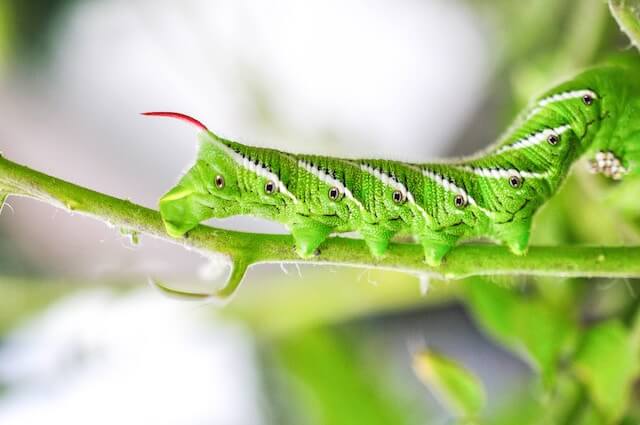
Hornworms are the caterpillars of a family of moths called sphinx moths or hawk moths. There are over 1,400 species of these moths, so there is a great range in nutritional value of hornworms, depending on the exact type you’re feeding your bearded dragon.
No matter what type of hornworm you have, they all have large amounts of protein, which your pet needs to grow and sustain their bone health. They also contain high levels of vitamins, Magnesium, Iron, and importantly – calcium. Calcium is vital for a bearded dragon’s health.
How often should you give hornworms to your beardie?
Many bearded dragons love the taste of hornworms and will happily gobble up these green critters when they get the chance. However, adult bearded dragons should only eat them every few days at most, as they tend to be high in fat. Drop five hornworms into your bearded dragon’s terrarium at a time. Make sure to remove any hornworms they don’t finish as they can bite them later. If they quickly finish all the hornworms, you can give them a few more until they’re full.
Juvenile bearded dragons (older than six months) can eat more hornworms as they need more protein at this stage of life to grow properly. You can give them ten to fifteen hornworms every few days.
Should I feed my baby bearded dragon hornworms?
Yes! It’s totally safe to feed baby bearded dragons hornworms. These are high protein worms with soft skeletons, which are easy for baby beardies to chomp on. Just be sure not to give them a hornworm that is too big and that they might choke on. A good rule of thumb is to find hornworms that are no bigger than the space between your baby beardie’s eyes.
Cons associated with feeding hornworms to your bearded dragon:
If you give your bearded dragon a hornworm you find outside, there’s always a chance it’s covered in insecticide or pesticide. When your dragon ingests this pesticide, it could poison them and cause them serious harm and distress. That’s why store bought or home raised worms are safest.
Hornworms are quite high in fat, so if you were to feed them to your bearded dragon daily, they could gain weight rapidly. Bearded dragons are prone to obesity, so you should monitor this closely. If they suddenly gain weight, cut back on high fat foods you’re feeding them.
What to do if your bearded dragon eats pesticide covered hornworms accidentally?
Don’t panic. Immediately stop your bearded dragon from eating the worms, and closely monitor them closely for symptoms of a strong reaction. This reaction could include:
- Bloating
- Diarrhea
- Vomiting
- Spitting up
- Abnormal behaviors
Give them lots of water to flush out the chemicals as well as a warm bath to calm them down and to encourage a bowel movement. If the reaction worsens or you’re noticing anything out of the ordinary, call a vet immediately.
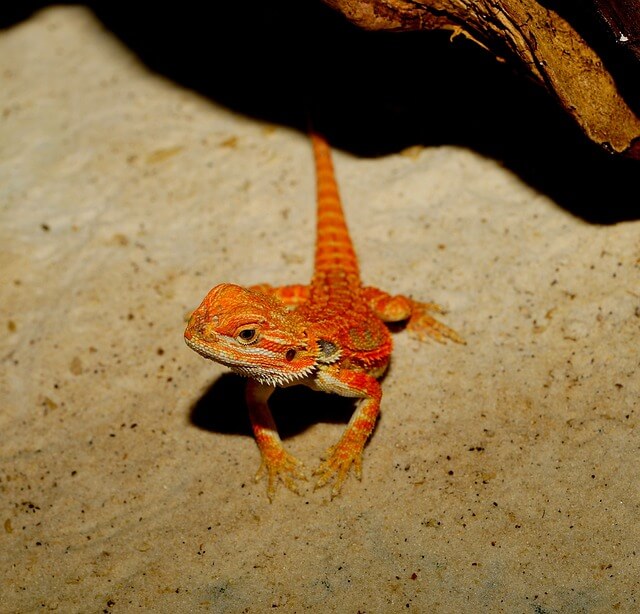
Frequently Asked Questions (FAQ): Can bearded dragons have hornworms?
Are hornworms poisonous to lizards?
No, hornworms are generally a great source of nutrition for lizards. However, be sure you don’t accidentally feed them hornworms from the wild that are covered in pesticides or chemicals of any kind.
How do I keep hornworms alive for my bearded dragon?
Hornworms only stay alive for about two to three weeks. To keep them alive longer, place them in a container or habitat with a plant for them to feed on. They like tomatoes and vegetables. Do not release them into your yard as they are pests. If you have unwanted hornworms, you can place them in the freezer for one day or pour alcohol on them to ensure proper disposal of any potential parasites or hornworm breeding in your trash.
What to do with hornworms that are too big?
You can place large hornworms in their cup, and they will grow into a large moth which your bearded dragon will happily eat. Alternatively, you can place them in the fridge to slow their growth. Some people decide to cut their hornworms so that their bearded dragon can eat them easily, but just make sure not to leave dead hornworms in their terrariums for too long as they will spoil.
Is it safe to touch a hornworm?
Yes, most hornworms are considered docile and safe to touch. They may nip at you but they are harmless to humans.
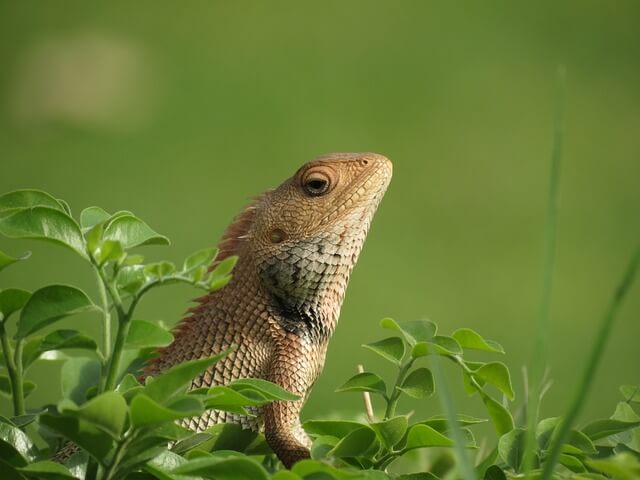
Foods bearded dragons can eat:
If you’re wondering what you should feed a bearded dragon, read our guidelines below. Bearded dragons are insectivores, which just means they thrive on insects as well as plant materials.
If you have a juvenile bearded dragon (between six and eighteen months old), give them about 80% vegetables and 20% live insects.
As your bearded dragon transitions into adulthood, give them the inverse, so 20% plant materials and 80% insects.
Getting your bearded dragon calcium:
Calcium is especially vital to a bearded dragon, especially a young one that is still growing. There are several ways to introduce more calcium into your beardie’s diet:
- Add in more high calcium vegetables like dandelions, bok choy, and collard greens.
- Dust calcium powder over their insects and vegetables to increase calcium levels.
- Make sure they’re getting their 12 hours of UVB exposure as they need this light to be able to properly absorb nutrients.
Vegetables to feed your bearded dragon:
- Peas
- Dandelion
- Green beans
- Cabbage
- Zucchini
- Pumpkin
- See our full list of vegetables to feed your bearded dragon
Note: Bearded dragons can also eat fruit in moderation. See here for a complete list of fruits bearded dragons can eat.
Insects to feed your bearded dragon:
- Crickets
- Kingworms
- Waxworms
- See our full guides to insects you can feed your bearded dragon and worms to feed your bearded dragon
Quick note: Live insects raised by you or bought from the pet store are best because they’re definitely pesticide free.
How often should you feed a bearded dragon?
During the first 3-6 months of your beardie’s life, try to feed them four to five times a day by giving them as many insects as they’d like in 10 minutes. They’re growing and need lots of protein during this stage.
Reduce the number of feedings to about two to three times a day when they’re growing into their juvenile years (between six and eighteen months).
As they become an adult, you can feed them once daily.
What should a bearded dragon not eat?
Avoid feeding your bearded dragon:
- Onions
- Leeks
- Chives
- Mushrooms
- Garlic
- Acidic fruit like oranges, lemons
- Rhubarb (can be toxic to them)
- Avocados (surprisingly, these make them ill)
- Eggplant
- Insects caught in the wild (there may be pesticides covering them)
- Venomous insects
- Dairy of any kind
- Rice and grains of any kind
- Frogs or toads
- Ham or other processed meats
Recap: Can bearded dragons have hornworms?
- Yes, bearded dragons can eat hornworms. They are highly nutritious and delicious to bearded dragons.
- Baby, juvenile, and adult bearded dragons can have hornworms.
- Make sure you aren’t feeding them hornworms daily, it should be given to them every few days at most.
For our full list of food to feed a bearded dragon, see our guide here.
Related articles:
